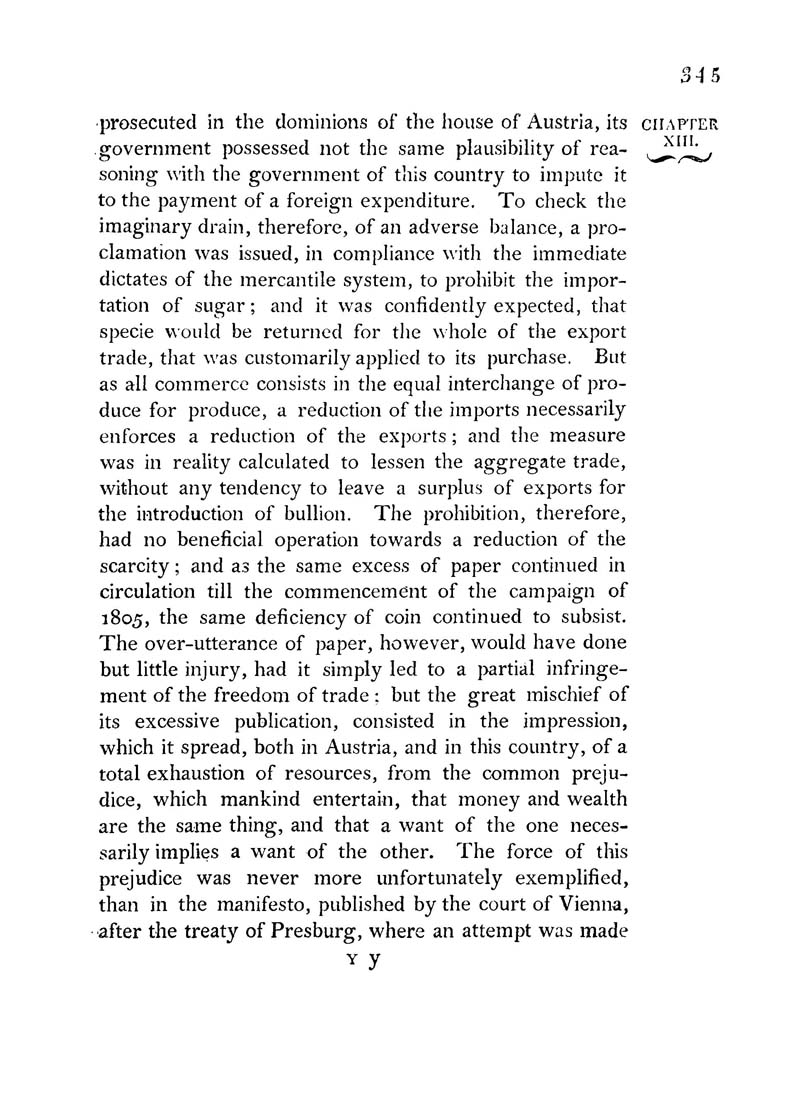345
a
prosecuted in the dominions of the house of Austria, its chapter
government possessed not the same plausibility of rea- ■^'^^'
soning with the government of this country to impute it
to the payment of a foreign expenditure. To check the
imaginary drain, therefore, of an adverse balance, a pro¬
clamation was issued, in compliance with the immediate
dictates of the mercantile system, to prohibit the impor¬
tation of sugar; and it was confidently expected, that
specie would be returned for the whole of the export
trade, that was customarily applied to its purchase. But
as all commerce consists in the equal interchange of pro¬
duce for produce, a reduction of the imports necessarily
enforces a reduction of the exports ; and the measure
was in reahty calculated to lessen the aggregate trade,
without any tendency to leave a surplus of exports for
the introduction of bullion. The prohibition, therefore,
had no beneficial operation towards a reduction of the
scarcity; and as the same excess of paper continued in
circulation till the commencement of the campaign of
1805, the same deficiency of coin continued to subsist.
The over-utterance of paper, however, would have done
but little injury, had it simply led to a partial infringe¬
ment of the freedom of trade : but the great mischief of
its excessive pubhcation, consisted in the impression,
which it spread, both in Austria, and in this country, of a
total exhaustion of resources, from the common preju¬
dice, which mankind entertain, that money and wealth
are the same thing, and that a want of the one neces¬
sarily implies a want of the other. The force of this
prejudice was never more unfortunately exemplified,
than in the manifesto, published by the court of Vienna,
after the treaty of Presburg, where an attempt was made
Y y
|








